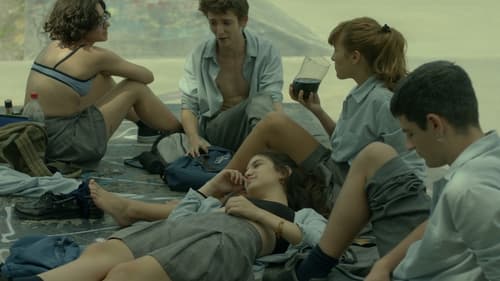
It is no coincidence that the second feature by Argentinian Melisa Liebenthal begins with a quote from “Duino Elegies” by Rilke, who was concerned with existential angst. And, more prosaically, Marina, the film’s young protagonist, is faced with similar anxiety. In fact, her problem is her face. One morning, she discovers her face has changed, and she can no longer recognise herself. Not even her mother can, who bumps into her on the street and says hello to her like she would to any stranger (deadpan, surreal humor is part of the film’s recipe). Marina is thus forced to confront her identity: who is she? Is she determined by her parent’s DNA or by her ID card? Can she be identified by a family portrait, by biometrics or the love of those around her, including her Colombian boyfriend? Is she prettier now?

Pablo
When her grandmother becomes seriously ill, Camila is forced to move to Buenos Aires, leaving behind a liberal public high school for a scholastic, traditional private institution. Suddenly a senior without any friends, and with her single mother caught up in family affairs; Camila's fierce yet immature temperament is put to the test as she deals with the jarring change of scenery, and the alluring set of possibilities and experiences that lie in wait in the big city.

Nahuel
Marcela’s world becomes strange and unfamiliar after her sister Rina dies. She feels lost in her own house, and her relationship with her husband and children seems to suffer. But when Nacho, a young friend of her daughter’s, unexpectedly drops by, she starts to talk and walk with him. Gradually Marcela begins to have conversations with relatives from another dimension.


